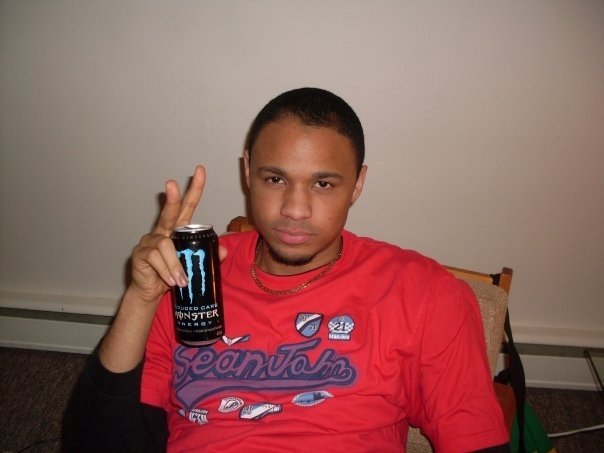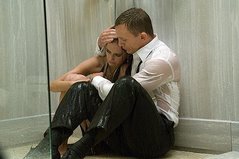
This film brought about a mixture of feelings from me, mostly rage. Carol, the female lead, is so manipulative, cunning and annoying, that I don't think I've ever hated a film's character more. Let's just say, the film's final moments brought a feeling of temporary relief for me.
Oleanna follows the story of how truth, when taken out of context and overblown, can be detrimental. A female university student, worried about her grades, comes in to see her professor, and after failed attempts at establishing effective communication, Carol prepares to leave. This is when the professor proposes that he give her an A in exchange for her company over a few days. She appears to be confused; he makes no obvious sexual advances to her, and she leaves on a seemingly good note.
In the second act, Carol is now the bearer of a sexual harassment charge filed against her teacher. As he attempts to talk his way out of it, and try to reach an agreement, it quickly becomes obvious that she isn't going to budge. She even occasionally refers to notes that she made of things he said to her, or to other female students, and is now apparently backed by a committee. Things quickly escalate.
The two leads (the only speaking roles in the entire film), are played by William H. Macy and Debra Eisenstadt. While Macy is particularly good and tries to do his best with the script, his co-star is equal parts annoying, monotonous and weak. Listening to her utter Mamet's lines is painful to say the least. She speaks in monotone, at the top of her voice most of the time, and I can recall having to turn down the volume and cover my ears one or two times to try to get through it. Those familiar with Mamet's writing style, know how poetic his verses can sound - when delivered by a talented actor (case in point, Baldwin in Glengarry Glen Ross). The dialogue in the first act was so poorly delivered by both actors, especially Eisenstadt, that I don't think I've ever heard anything more stilted. No one could get a complete sentence out because they both interrupted each other the whole time. Trying to move on from there to finish the movie was indeed tedious.
I don't think it's fair to criticize Mamet's writing however, what is written is brilliant, thought-provoking stuff. It's moreso the acting, and his direction for not correcting this, that ultimately damages what could have been a real winner. For a film that takes place on one set most of the time, and features only two speaking roles, this one kept my attention. However, there are far too many missteps to recommend this to anyone. I'll say this much, if you are looking for a film that will challenge your mind (and patience, while I'm at it), and present you with a situation where you must decide who's right and who's wrong, this is definitely worth a look. But like the film's tag says, Whatever side you take, you're wrong.
♥♦½ 6/10
Oleanna follows the story of how truth, when taken out of context and overblown, can be detrimental. A female university student, worried about her grades, comes in to see her professor, and after failed attempts at establishing effective communication, Carol prepares to leave. This is when the professor proposes that he give her an A in exchange for her company over a few days. She appears to be confused; he makes no obvious sexual advances to her, and she leaves on a seemingly good note.
In the second act, Carol is now the bearer of a sexual harassment charge filed against her teacher. As he attempts to talk his way out of it, and try to reach an agreement, it quickly becomes obvious that she isn't going to budge. She even occasionally refers to notes that she made of things he said to her, or to other female students, and is now apparently backed by a committee. Things quickly escalate.
The two leads (the only speaking roles in the entire film), are played by William H. Macy and Debra Eisenstadt. While Macy is particularly good and tries to do his best with the script, his co-star is equal parts annoying, monotonous and weak. Listening to her utter Mamet's lines is painful to say the least. She speaks in monotone, at the top of her voice most of the time, and I can recall having to turn down the volume and cover my ears one or two times to try to get through it. Those familiar with Mamet's writing style, know how poetic his verses can sound - when delivered by a talented actor (case in point, Baldwin in Glengarry Glen Ross). The dialogue in the first act was so poorly delivered by both actors, especially Eisenstadt, that I don't think I've ever heard anything more stilted. No one could get a complete sentence out because they both interrupted each other the whole time. Trying to move on from there to finish the movie was indeed tedious.
I don't think it's fair to criticize Mamet's writing however, what is written is brilliant, thought-provoking stuff. It's moreso the acting, and his direction for not correcting this, that ultimately damages what could have been a real winner. For a film that takes place on one set most of the time, and features only two speaking roles, this one kept my attention. However, there are far too many missteps to recommend this to anyone. I'll say this much, if you are looking for a film that will challenge your mind (and patience, while I'm at it), and present you with a situation where you must decide who's right and who's wrong, this is definitely worth a look. But like the film's tag says, Whatever side you take, you're wrong.
♥♦½ 6/10
© 2007 Kim Bartlett








No comments:
Post a Comment